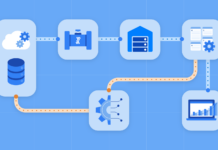There are several important steps to become a self-taught software engineer without a computer science degree. Software engineers design, develop, and deploy the advanced information systems we use everyday. These expert professionals are in demand worldwide as more businesses look to adopt robust software products. Therefore, passionate software enthusiasts, such as yourself, can earn a high-paying salary working in this technical field. In fact, pursuing these opportunities helps you build a transferable skill set, challenge yourself with a constant learning curve, and showcase your creativity. To help you get started, read on to learn about how to become a self-taught software engineer without a CS degree.
Choose A Specialization
First and foremost, choose a software engineering niche to specialize in. There are several distinct areas of development that you can continue pursuing. Many tech enthusiasts that are passionate about design and systems development should look into web or applications development. This is a great choice if you want to build, test, and run a website. If you enjoy working on projects collaboratively, DevOps is another great area to specialize in. Some prospective engineers even follow the route of specializing in video games or IoT connected devices. In fact, you may even want to look into specializing in developing a specific category of software, such as medical or enterprise business. Certainly, choosing a specialization is an important step to become a self-taught software engineer.
Learn Some Programming Languages

Next, learn some popular coding languages for software engineering. Some of the most popular languages for developers are currently Java, Python, Scala, and C++. In addition, Ruby is an excellent framework that is fast, efficient, and user-friendly. Similarly, Google’s Golang is a relatively new architecture that is concurrent, cross-platform, and open-source. Of course, this innovative language has already been embraced by massive companies like Facebook, Twitter, and Docker. Other popular languages to consider include Elm, C#, and Rust. Surely, learning some programming languages is an important step to become a software engineer without a CS degree.
Master The Top Development Tools
Once you are familiar with a few frameworks, master some of the best software engineering tools. There are several popular, powerful tools used by software developers across the globe. For example, many developers use container registries to effectively manage and organize Docker images. Using a container registry by JFrog, you can take advantage of consistent, efficient, and reliable access with integration to your build ecosystem. This way, you can simplify access control, scan for vulnerabilities, and make patches as needed. Of course, you can use these tools to require authentication of users, as well as images. Indeed, teaching yourself how to use some development tools is important to become a custom software engineer.
Supplement Your Studies

At this point, you are ready to supplement your software engineering studies. There are plenty alternative educational references to help you teach yourself development. Start with some educational books that discuss coding, programming languages, and development paradigms. In addition, subscribe to popular video channels and listen to some reputable podcasts. Similarly, engage with the community on open-source collaboration and knowledge sharing platforms. Another popular approach is to read code written by experienced, trusted developers. This way, you can get a better understanding of how languages work and improve your writing skills. Definitely, supplementing your studies will prove largely beneficial as you look to become a self-taught software engineer.
Cultivate A Professional Tech Network

As you look to become a successful software engineer, you should always be looking to cultivate and grow your professional network. Reach out to your existing networks, reach out to leading companies, and leverage the power of social media. In addition, attend popular software development events, such as conferences, expos, and seminars. Even more, you can attend local meetups, maintain a tech blog, or offer to speak at relevant workshops. Following this approach, you can strengthen business connections, identify new employment prospects, and identify the best practices. This way, you can build confidence, get fresh ideas, and raise your portfolio. Absolutely, cultivating your professional network is important to become a self-taught software engineer.
Start Your Job Search
Once you are confident in your professional tech network, you can officially begin the job search. Get started by analyzing your past successes, accomplishments, and current skill sets. Then, update your resume and clean up your social media. Now, brainstorm the type of companies you want to work for and start making a list. With all of this information compiled, start applying for open positions using specialized job boards, social media, and company websites. Similarly, be sure to use connections that you have gained in your professional network. In short, beginning the job search will help you find a high-paying job as a software developer.
Prepare For Job Interviews

Now, you are ready to start preparing for job interviews. First, spend some time getting to know your audience. Learn everything you can about the interviewing company. This way, you can get a better understanding of who the company is and what they do. Then, begin practicing with some interview questions. Some of the most popular queries you will likely be asked concern your strengths and weaknesses, prior experience, as well as your motivations. Once you are confident in all of these areas, begin thinking about what you are going to wear. Pick the perfect professional interview outfit and make sure you get it cleaned. Clearly, take the time to prepare for job interviews on your journey to become a software engineer.
There are a few important steps to become a self-taught software engineer without a computer science degree. First off, choose a specialization, such as web development, DevOps, or mobile application programming. Next, learn some programming languages like Python, Ruby, or JavaScript. Once you have done so, master some popular programming tools. Now, you are ready to supplement your studies with coding books, videos, and podcasts. As you continue, cultivate a professional network of like-minded software enthusiasts. Once you have all these steps complete, it is time to officially begin your job search. Then, prepare for the job interviews. Follow the points highlighted above to learn about how to become a self-taught software engineer without a CS degree.









